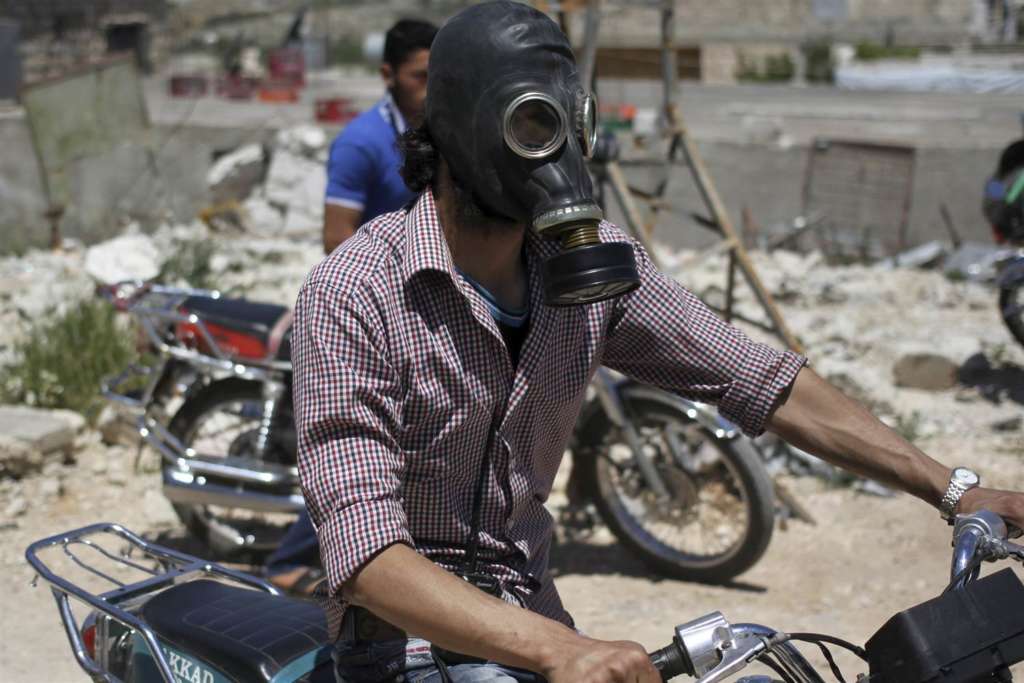Washington, Beirut- The U.S. on Thursday sanctioned for the first time Syrian military officials for using chemical weapons, according to a Treasury Department statement.
In addition to blacklisting 18 senior Syrian officials, the U.S. also sanctioned five Syrian military branches, including the Syrian Arab Air Force, Syrian Arab Air Defense Forces, Syrian Arab Army, Syrian Arab Navy, and Syrian Arab Republican Guard.
Ned Price, a White House National Security Council spokesman, urged “every U.N. member state and parties to the Chemical Weapons Convention, including Russia, to support efforts to enforce accountability through the U.N. Security Council and using domestic law.”
Price said: “The international community must make clear that chemical weapons use is unacceptable and violators will face significant consequences for their actions.”
He said the U.S. condemns in the strongest possible terms the Syrian regime’s use of chemical weapons.
“The Assad regime’s barbaric continued attacks demonstrate its willingness to defy basic standards of human decency, its international obligations, and longstanding global norms,” Price added.
Next week, the U.N. Security Council is expected to discuss the political part of the Syrian file amid reports about British and French insistence to take measures concerning their draft resolution presented last month to impose sanctions against the Syrian regime for using chemical weapons against civilians.
The sanctions will target many Syrian officials, including Col. Suheil al-Hassan, the head of the Syrian Arab Air Intelligence, Col. Mohammad Bilal, an official at the Syrian Arab Air Intelligence, Muhammad Khalid Rahmun, the director general of the Syrian Political Security, Maj. Gen. Mohammed Mahla, the head of the Syrian Arab Military Intelligence and Brigadier General Yasin Ahmad Dahi at the Syrian Arab Military Intelligence.
Meanwhile, representatives from the Syrian opposition held meetings with Turkish and Russian parties in Ankara, where they focused on the need to guarantee a ceasefire, prevent any attempt to change the current military map, and avoid the forced deportation of civilians, particularly in the Damascus countryside and eastern Ghouta.
After receiving those guarantees, the opposition would then discuss whether it would participate in the Astana talks expected next Jan. 23. Opposition representatives also asserted that the talks should not contradict previous agreements reached in Geneva.
Opposition sources asserted that its delegation, including around 100 figures, placed the issues of the ceasefire and the military map as a condition to its participation in the Astana talks.
Opposition figure Abdelrahman al-Hajj told Asharq Al-Awsat that if the condition linked to the ceasefire is implemented during the next 48 hours, the opposition would then only send a delegation representing the factions, or in other terms, would accept Russia’s previous condition to only invite the opposition factions, ignoring the political groups.
